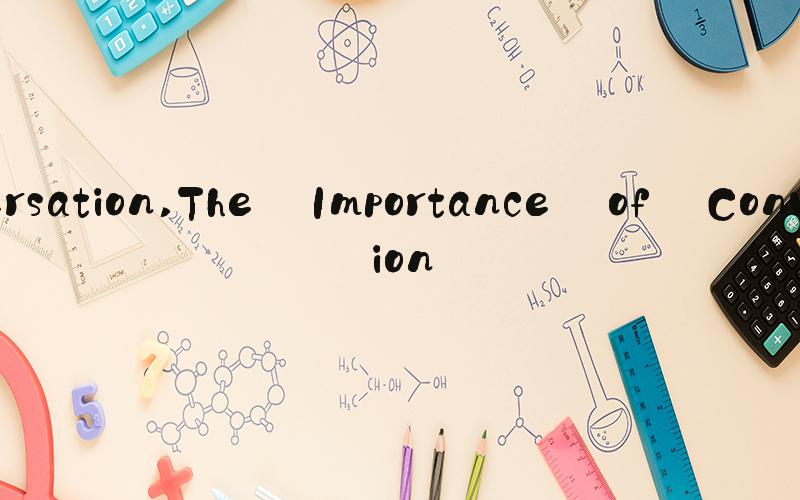AI答案
 Introduction
IntroductionAs human beings, we are wired to communicate with one another. Communication can take many forms, such as verbal, nonverbal, and written, among others. In this article, we will explore one of the most common forms of communication: conversation. Conversations are essential in our daily lives as they help us connect with people, share ideas, and create bonds. With that said, let's dive into the world of conversation.
The Importance of ConversationConversation is a powerful tool that enables us to express ourselves, provide feedback, and learn from others. Engaging in conversations can help us gain new perspectives, challenge our beliefs, and even change our behaviors. For children, conversations are critical to their cognitive development, language skills, and socialization. Additionally, conversations can have a positive effect on our mental health by reducing stress, improving self-esteem, and strengthening relationships.
Despite the significance of conversations, they can sometimes be challenging. Misunderstandings, communication barriers, and cultural differences can all impede conversations. However, by actively listening, being mindful of our body language, and practicing empathy, we can become better conversationalists.
Types of ConversationsConversations can take various forms, depending on the context, participants, and purpose. Let's look at some of the most common types of conversations.
Small Talk: These are casual, light-hearted conversations that occur between people who are not close friends or family. Small talk is a great way to break the ice and establish a connection.
Interviews: These are formal conversations between an interviewer and interviewee that aim to assess the latter's qualifications and fit for a job. Interviews typically follow a structured format and require preparation.
Arguments: These conversations involve disagreement and conflict between two or more parties. While arguments can be uncomfortable, they can also lead to productive outcomes if handled respectfully.
Negotiations: These conversations involve a give-and-take between two or more parties with different needs and goals. Negotiations can be challenging, but they can also result in mutually-beneficial agreements.
Elements of a Good ConversationTo have a good conversation, several elements are essential. Below are some of the critical elements that facilitate healthy and productive conversations.
Active Listening: Active listening involves paying close attention to what the speaker is saying, asking questions, and rephrasing what they have said to demonstrate understanding.
Openness: Good conversations require an open mind and willingness to engage with different perspectives without judgment or bias.
Empathy: Empathy involves putting oneself in the other person's shoes and understanding their feelings, needs, and concerns.
Respect: Good conversations require mutual respect, even when there is disagreement or conflict.
Tips for Effective ConversationsTo become an effective conversationalist, there are several tips you can follow. These include:
Prepare: Prioritizing the conversation and preparing for it can help you stay focused and articulate your ideas clearly.
Be Present: Give the conversation your undivided attention and avoid distractions such as phones or multitasking.
Ask Questions: Asking open-ended questions can help clarify the speaker's ideas and promote deeper understanding.
Validate: Validating the other person's feelings or opinions can help foster a sense of trust and respect.
Stay Calm: Even if the conversation becomes heated, staying calm and composed can help maintain an open and respectful dialogue.
ConclusionIn conclusion, conversations are an essential aspect of human communication that helps us connect, empathize, and learn from one another. Conversations can take many forms, and each type requires different skills and strategies. By actively listening, remaining open-minded, practicing empathy, and showing respect, we can become better conversationalists and enjoy more meaningful and productive conversations with others.
